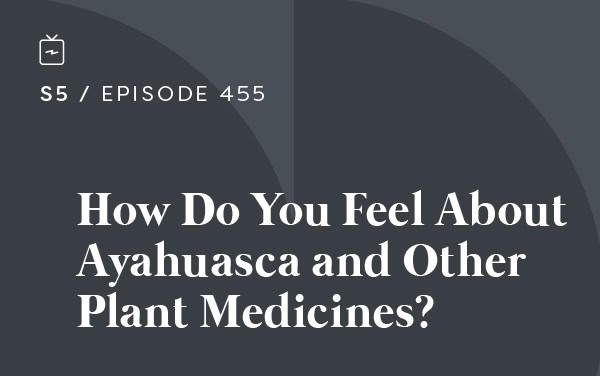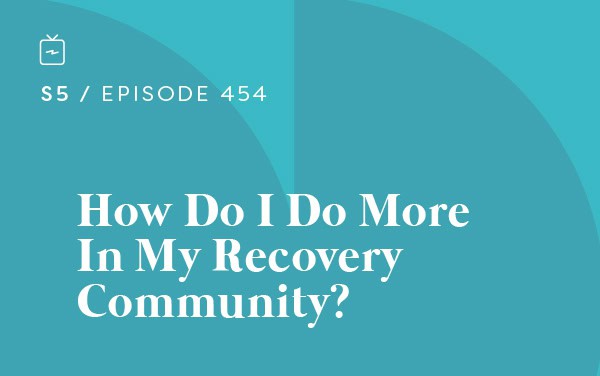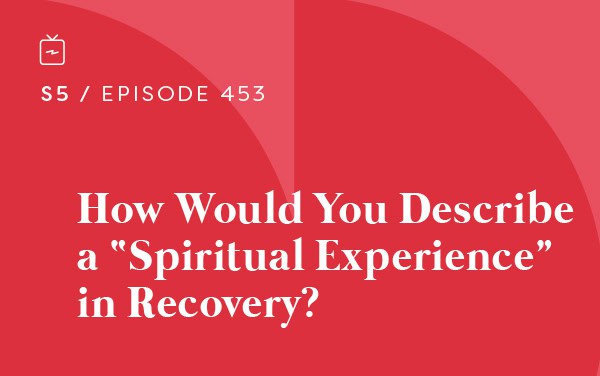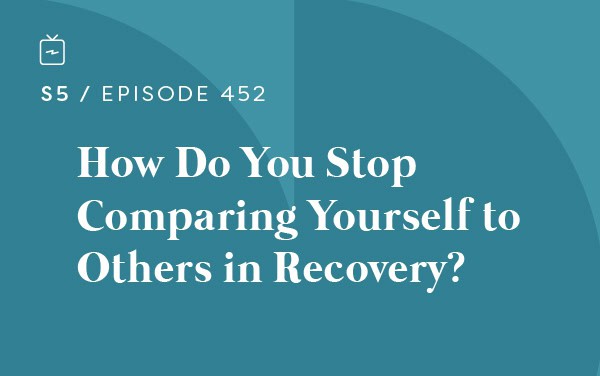
by Kris Oyen | Nov 13, 2023 | Podcast
Podcast: Play in new window | Download
Subscribe to the Recovery Elevator Podcast Apple Podcasts | | More
Episode 456 – How Do You Overcome Resentments?
Today we have Nathan. He’s 42 years old and from Andover, MN and took his last drink on April 19th, 2023.
On January 1st, 2024, we are starting our intensive sobriety course geared towards the newcomer. Check out the link to learn more about RESTORE.
Exact Nature: https://exactnature.com/RE20
[02:01] Highlights from Paul:
Today’s question is from Darren A. who asks, “Can you discuss resentment and letting go of resentment?”
Life is a school where the people, places, and things are there to help us grow and become deeper human beings. The people we encounter in life are there to help us grow.
The theory is that none of this is happening to you. Remember, that is how a victim speaks. Flip that to believe that everything that has ever happened to you in your life is happening for you, for your own personal growth and development, to make you a more resilient human being.
Resentments are the teachers. Yes, they suck, they emotionally and physically hurt, but they are the opportunities for healthy and normal growth.
Another strategy is to stop labeling things as good or bad. When a person, place or thing pisses you off, try to recognize the mind immediately slapping a label on it, try to remain open. We don’t know what’s going on behind the scenes. That person who may have recently dogged you may have actually shielded you from a tragedy down the road.
“You can be right, or you can have peace.” Paul shares this mantra with us frequently on the podcast. He tries to repeat this mantra when he encounters a difficult life challenge.
We want to hear from the listener. How do you overcome resentments? Let us know in our Monday Instagram post on the Recovery Elevator Instagram page.
Better Help: www.betterhelp.com/elevator – 10% off your first month. #sponsored
[08:56] Kris introduces Nathan:
Nathan is 42 and lives in Andover, MN. He works in financial operations but was recently laid off. He is in the process of going through a divorce and has two cats. He enjoys woodworking and building things with hand tools, he also enjoys golf, reading and occasionally writing.
Nathan calls himself a late bloomer and hated beer. It was normal to have it around when he was growing up, but his dad drank NA beer. He was a casual drinker through his twenties and thirties.
In late 2019 Nathan’s wife was in a car accident related to some health issues. It was a very stressful time for them as his wife was unable to drive and undergoing a lot of testing and Nathan was dealing with a very stressful work project as well.
Some health issues drove Nathan to use alcohol to ease his symptoms. His career was stressful, and he and his wife were having communication issues. Nathan didn’t drink every day, but some days were binge sessions. He discovered the amount he could have without too many consequences the next day.
After a weekend of binge drinking, Nathan had an experience that felt like he was having a heart attack, and he went to the ER where he realized alcohol was causing the problems. Soon after he was able to admit to his wife that he needed to stop. He went back to the ER and told them that he needed help. After detox, Nathan enrolled in an IOP and connected with a great counselor.
It took a few months for Nathan to start feeling physically better and is currently confronting some difficult life situations. He plays the tape forward and continues to work on his recovery despite the strong emotions he is dealing with.
Nathan’s favorite resources in recovery: his IOP counselor, the RE podcast and Café RE.
Nathan’s parting piece of guidance: make a plan (to avoid relapse), make it really detailed and change it as you need to.
Instagram
Recovery Elevator YouTube
Sobriety Tracker iTunes
Recovery Elevator
You’re the only one that can do this, but you don’t have to do it alone.
I love you guys.

by Kris Oyen | Nov 6, 2023 | Podcast
Podcast: Play in new window | Download
Subscribe to the Recovery Elevator Podcast Apple Podcasts | | More
Episode 455 – How Do You Feel About Ayahuasca and Other Plant Medicines?
Today we have Chris. He is 40 years old and lives in Austin, TX. He took his last drink on February 16th, 2007.
Check out our events page for our lineup of upcoming retreats and courses. Beginning January 1st, RESTORE, our intense Dry January course is back! In February we have another 5-week Ukelele Course. Then in March, we have two events in Costa Rica, and we’ll see you in Bozeman, Montana in August for our 6th annual retreat in Big Sky Country.
Exact Nature: https://exactnature.com/RE20
[02:16] Highlights from Paul:
Today is episode 9 out of 10 in the Q&A series.
Today’s question comes from Krista B, in our Café RE group. She says:
“How Paul is feeling about ayahuasca and other plant medicines. Are you still as passionate about its benefits today as a few years ago? Has the treatment worked in a sustained way, in your opinion?”
Paul shared his initial experience with ayahuasca in episode 170. He believes that plant medicines have a place in the world of addiction and mental health. Do not buy it on the internet and try it solo; set and setting is everything. There is so much preparation that needs to go into an ayahuasca ceremony and under the right circumstances, it will answer many questions. A big one being why you drink. Paul shares how ayahuasca still impacts his everyday life.
While Paul found plant medicine helpful on his journey, he recognizes it’s not for everyone, nor does he think everyone should try plant medicine. If you are interested, please do your own research before trying it.
Better Help: www.betterhelp.com/elevator – 10% off your first month. #sponsored
[11:59] Paul introduces Chris:
Chris lives in Austin Texas; he is married with two children aged 8 and 9. He is an entrepreneur and enjoys being creative through many avenues.
Chris always felt like an outsider that didn’t belong while he was growing up. His parents divorced when he was young, and he blamed himself and ended up distancing himself from people. He craved connections and ended up starting drinking with a group of friends. Chris felt like alcohol was the solution to his feelings of not belonging. His drinking increased and over time he lost all those connections that he used alcohol to find and was drinking alone. At age 23 he went to treatment where they helped him recognize that he had some mental health issues, the main ones being social anxiety and depression.
Some alumni from the group accepted Chris, helped him go to meetings and then they would all socialize afterwards. He finally felt he was making connections that he had craved all his life.
Seeing people that were staying sober and succeeding was a big boost to Chris’ confidence, and he felt like it was possible for him to do the same. His life in sobriety was becoming so great that he never had a desire to go back to drinking.
Chris started going to school to become a counselor and immediately started working in the recovery field. He knew it was important to maintain and strengthen his recovery to do the job successfully.
Chris started Sans Bar in 2018 as a pop-up bar when there were very few options in the alcohol-free arena. The pop-ups grew, and more and more people were interested in what Chris was doing, mostly through word of mouth. He feels it came along at the right time as the sober curious movement was beginning. Chris says doing this gave him the same feelings that his first sip of booze did – he was forming connections. He feels Sans Bar is for everyone, not just people in recovery.
Chris’s favorite resources in recovery: The Luckiest Club, 12 step programs, podcasts.
Chris’s parting piece of guidance: you can’t fail. The point of sobriety is not abstinence, it’s growth.
Instagram
Recovery Elevator YouTube
Sobriety Tracker iTunes
Recovery Elevator
Go big, because eventually we all go home.
I love you guys.

by Kris Oyen | Oct 30, 2023 | Podcast
Podcast: Play in new window | Download
Subscribe to the Recovery Elevator Podcast Apple Podcasts | | More
Episode 454 – How Can I Do More In My Recovery Community?
Today we have Kristan. She is 60 years old and lives in Delaware. She took her last drink on June 3rd, 2019.
Exact Nature: https://exactnature.com/RE20
[01:34] Highlights from Kris:
Today we are continuing the Q & A series and it’s a two for one.
First question, Dale wants to know “How can I do more in my recovery community?”
Some traditional responses to this question might AA, or any other group with the word recovery in it. These are great, but Kris shares that we can expand our view to other groups. Church groups, book club, a running club, or a workout group.
Sharing can be a great way to get involved within a recovery community. Hearing others share and be vulnerable encourages us to share and be vulnerable too. By being open, you are being of service in your recovery. You never know who you may be helping with your share.
Think of the things that you bring to the table, and what you’d like to see your community offer. It could be as simple as organizing an outing to have a meal with other local members or hosting a chat in your online community.
Listen to your heart. If you feel that tug to do something, be obedient to that. We have no idea how it could impact our lives, or the lives of other people.
Athletic Greens: https://www.athleticgreens.com/recovery
[09:25]: Kris introduces Kristan:
Kristan is married and has adult kids, she enjoys traveling, participating in triathlons, and hanging out with her sober friends doing fun activities.
Kristan grew up in Louisiana and started drinking when she was 12 and partied throughout high school. She graduated from college and moved to Australia for a few years. She moved to DC when she came back and worked as a reporter while enjoying the nightlife. Kristan says that in her profession, drinking was very common, and she surrounded herself with people that drank a lot.
Later when she bought a house in Delaware, her and her husband split time between home and DC which left Kristan with a lot of time alone. She started putting rules around her drinking early on which found her frustrated. Her husband doesn’t drink which made her feel like she was being monitored. Kristan never drank during the day but found herself drinking daily at 5pm. Her problem wasn’t obvious to her because she was successful and hadn’t lost anything (yet).
Kristan’s drinking came to a head after a long night of drinking with friends where she doesn’t remember the last few hours. She woke up to a text from her daughter stating that she was concerned about her drinking. Kristan decided it was time to quit. A phone call to family member in recovery helped her take the first steps. A few days later she told husband she quit drinking. She started regularly attending AA and got a sponsor, began reading books about recovery and enjoyed listening to podcasts.
Kristan was eager to celebrate all of life’s events sober. She says she has a great group of friends that are still fun in sobriety. After quitting, Kristan realizes how much mind space drinking took up. She says the first year was difficult, but she got stronger as she went. Kristan loves being sober. Her relationships with her daughter and husband are the best they have ever been.
Kristan’s future plan in sobriety: working on her emotional sobriety.
Kristan’s parting piece of guidance: give it a year, surround yourself with sober people.
[54:15] Kris answers Bobbie the Awesome’s question regarding NA beverages and shares some personal experiences.
Choosing whether to drink them or not is a very personal decision. It’s up to you to decide what’s right for you, and it’s a good idea to err on the side of caution if you are nervous about it.
Instagram – We regularly feature content here.
Recovery Elevator YouTube
Sobriety Tracker iTunes
Recovery Elevator
We’re the only ones that can do this, but we don’t have to do it alone.
I love you guys.

by Kris Oyen | Oct 23, 2023 | Podcast
Podcast: Play in new window | Download
Subscribe to the Recovery Elevator Podcast Apple Podcasts | | More
Episode 453 – How Would You Describe a “Spiritual Experience” in Recovery?
Today we have Andy. He is 46 from Washington, DC and took his last drink on August 12th, 2023.
If you are struggling to quit drinking alone, check out the private community Café RE.
Use the promo code OPPORTUNITY to waive the setup fee!
Exact Nature: https://exactnature.com/RE20
[02:17] Highlights from Paul:
Today’s question is from Liz in the Café RE OG group: “How Would You Describe a “Spiritual Experience” in Recovery? Was it a Bill W. “White Light” or a long series of little twinkles? Somewhere in between? Something else altogether?”
We all know there is no right or wrong way to quit drinking, but Paul believes the spirituality component is important, because it connects or reconnects you to the universe or a god of your understanding.
For many, a large twinkle of spirituality took place took place near the date of their last drink. Some call this a window of clarity. I’ve heard it been described as “I just knew it was going to be different this time.” Swiss psychiatrist Carl Jung called them synchronicities or the breadcrumbs of life.
Everyone’s version of spiritual awakening will be different. We just need to be open to the twinkles that can happen all around us.
Better Help: www.betterhelp.com/elevator – 10% off your first month. #sponsored
[11:53]: Paul introduces Andy:
Andy took his last drink less than a week before the time of this recording. Andy has moved around a bit while being in the military but currently lives in DC. He is an officer in the Air Force and has been serving for 26 years. He is married and has four kids. He enjoys ultra marathons, gardening, and traveling with his family.
Andy grew up around a lot of drinking in the small town he lived in. There was always beer in the house, and he feels it was ingrained in his life. He had his first drink in 8th grade. It was on a grueling camping trip when one of the adults handed him a bottle of booze and told him it would take the edge off. He really enjoyed the feelings he got from it.
Andy did well in school both academically and athletically, but the drinking continued. After graduating college, he enlisted in the military. He would stay sober during brief deployments but would start drinking again as soon as he came home. He struggled with missing his military family more than his wife and kids at home.
Andy had an opportunity to work at the Embassy in Croatia, so they moved. After a few years Andy and his wife split up and his drinking was out of control. He ended up moving back to the US as a single dad. He was not being as productive at work due to his drinking and often used his being a single dad as an excuse.
Andy was able to get sober few times after asking for help. First from a very close friend after a major bout of anxiety and then at another time post relapse from a doctor when he originally went to see them for a sore throat. He says that during these experiences, he felt relief. He started going to AA and stopped fighting that he was unable to casually drink. His wife would attend meetings with him for support. Andy got a very patient sponsor who helped him through the steps. Life started improving a lot for him over this time.
After a relapse last Christmas, Andy fell right back into the cycle and was even hiding alcohol again. He considers the five years he had as part of his recovery and plans to get back into AA when he feels ready. He misses how he felt and wants it back. Andy plans to get back to good habits to help him stay sober, reading books, listening to podcasts, and sharing with his wife.
Andy’s favorite resources in recovery: RE podcast, reading, finding someone you can trust to talk to daily.
Andy’s parting piece of guidance: hold onto this moment and don’t look too far ahead or too far in the past.
Instagram
Recovery Elevator YouTube
Sobriety Tracker iTunes
Recovery Elevator
We’re the only ones that can do this, but we don’t have to do it alone.
I love you guys.

by Kris Oyen | Oct 16, 2023 | Podcast
Podcast: Play in new window | Download
Subscribe to the Recovery Elevator Podcast Apple Podcasts | | More
Episode 452 – How Do You Stop Comparing Yourself to Others in Recovery?
Today we have Emilee. She is 33 from Double Springs, AL and has been alcohol free since February 26th, 2023.
We are in the process of building some incredible events for the upcoming year, to new locations, and types of retreats we have never done before.
Our flagship annual retreat in Bozeman, Montana in August, then we are working on an AF travel trip in October 2024 with possible destinations being India, Vietnam, or the Camino de Santiago in Spain. But even before those events, we are working on Two retreats in Guanacaste, Costa Rica. Keep an eye out for more info: Recovery Elevator events.
Exact Nature: https://exactnature.com/RE20
[02:55] Highlights from Paul:
Today’s question is from Dale: How do I stop comparing myself to others in Recovery?
This is a BIG PICTURE question. An issue that probably didn’t arise when you quit drinking. I’m guessing this is something you have been doing for quite some time.
Part of this is healthy. You’ll want to model your sobriety after someone who seems to have done the work, or who has what you want. You’ll want to compare parts of your journey with theirs… But the key is not to have it consume you.
Paul shares his thoughts on this topic and reminds us that comparison is all part of the human condition and to know that when one person blooms, we all receive the benefit.
Better Help: www.betterhelp.com/elevator – 10% off your first month. #sponsored
[10:30]: Kris introduces Emilee:
Emilee is 33 from Double Springs, AL. She is married and they have one daughter together. For work, she is a high school algebra teacher and for fun she enjoys doing outdoor activities including hunting and fishing and she also enjoys playing the piano, working out and cooking.
While growing up, Emilee didn’t have much exposure to alcohol. She says she was always shy growing up and it wasn’t until she was 19 that a boyfriend introduced her to a group of friends that drank a lot. In that environment, she discovered a different version of herself that was much more outgoing. This went on for a few months, but her drinking decreased for about a year before she went to college.
Emilee managed to keep with her studies but when she drank it was always to excess. She was home for the summer when her father suddenly passed away. She had to go back to school very soon after it happened and while she didn’t drink to cope with it, she had a lot of anxiety and was just going through the motions.
After graduating from college, Emilee got married and then got her first teaching job all in a short period of time. While the first year of her new career was very stressful, Emilee started a routine of getting alcohol on the way home from work and drinking throughout the evening. Her husband was also drinking and after a while they both started putting parameters on it. They eventually tried to quit, but that didn’t last, and Emilee started finding herself hiding her drinking and preferring drinking alone.
While pregnant, Emilee was able to stop drinking. She remained sober for a few months after having her daughter, but gradually started going back to her old habits. Emilee says she never really dealt with her father’s death so her emotions would come up a lot when she would get drunk.
Emilee started feeling the pull to quit drinking. She got a bunch of books and was able to stop for a few days at a time. Listening to the RE podcast would often keep her from stopping at the store for alcohol. Learning the science of what alcohol does to our bodies also helped her quit. Since quitting drinking Emilee feels that her relationships have improved.
Emilee’s favorite resources in recovery: RE podcast and Café RE.
Emilee’s parting piece of guidance: don’t quit quitting.
Instagram – We regularly feature content here – often with goats!
Recovery Elevator YouTube
Sobriety Tracker iTunes
Recovery Elevator
We’re the only ones that can do this, but we don’t have to do it alone.
I love you guys.







